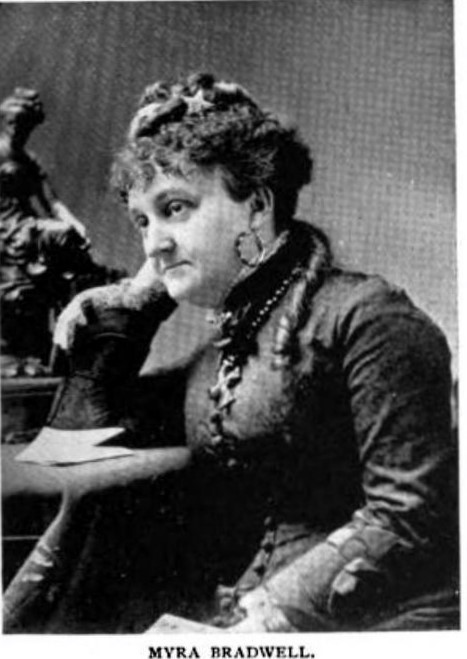In Need of a Little Inspiration? Consider the Story of Myra Bradwell
All Myra Colby Bradwell wanted to do was become a lawyer. In an era when women make up about 40% of practicing attorneys, this would seem to be an achievable goal. But when Myra, born in 1831, passed the Illinois Bar exam in 1869, she was promptly denied the right to practice law by the Illinois Supreme Court.
Students of common law history will identify the court’s reasoning: the doctrine of coverture. By entering into marriage, a woman’s identity under the law — and thus all her legal rights and obligations — were subsumed by her husband. (What a romantic proposal: “Baby, will you make me the happiest man on earth by allowing me to take all your legal rights away?”) Since a married woman could not be bound by express or implied contracts, the court said, such as one between an attorney and her client, she was not capable of practicing law.
Myra, who was married to Cook County Judge James Bradwell (know as the “sweet singer of Cook County” for the songs he wrote and performed to bolster the cause of the Union in the Civil War), appealed her case to the U.S. Supreme Court on the basis of the 14th Amendment. In an especially galling case of what we would now call constitutional originalism, the court ruled against her:
“We are certainly warranted in saying that when the legislature gave this court the power of granting licenses to practice law, it was with not the slightest expectation that this privilege would be extended equally to men and women.”
Well, then. While surely disappointed in the ruling, Myra by this time was running the most widely circulated legal newspaper in the country, the Chicago Legal News, which provided extensive coverage of court cases and records, and advocated for women’s rights and suffrage. In 1871, when the offices of the newspaper burned along with the rest of the Bradwells’ property and most of the city of Chicago, Myra’s resourceful 13 year-old daughter Bessie rescued the newspaper’s subscription book from the flames and returned it to her mother. The family hustled to temporary quarters in Milwaukee and put out the next edition of the paper — right on time.
Throughout her career, Myra helped craft legislation, such as the Illinois Married Women’s Property Act of 1861 and the Earnings Act of 1869, to help women control their earnings and property. She and her husband also spent several years advocating for Mary Todd Lincoln, who fought to be released from an insane asylum after her son had her committed, in what Mrs. Lincoln believed was an attempt to claim control of her assets.
Finally, in 1890, the Illinois Supreme Court granted Myra a license to practice law, and the nation’s highest court followed suit in 1892. By then it was too late for her to put her legal genius to work serving clients in court; she soon took ill and died of cancer. But Myra’s tireless fight to open the bar to women paved the way for every woman lawyer practicing today.
Myra Bradwell is a hero to Page 2’s journalist and lawyer friends alike. In honor of Women’s History Month, we salute Myra and all the pioneering women in law.

